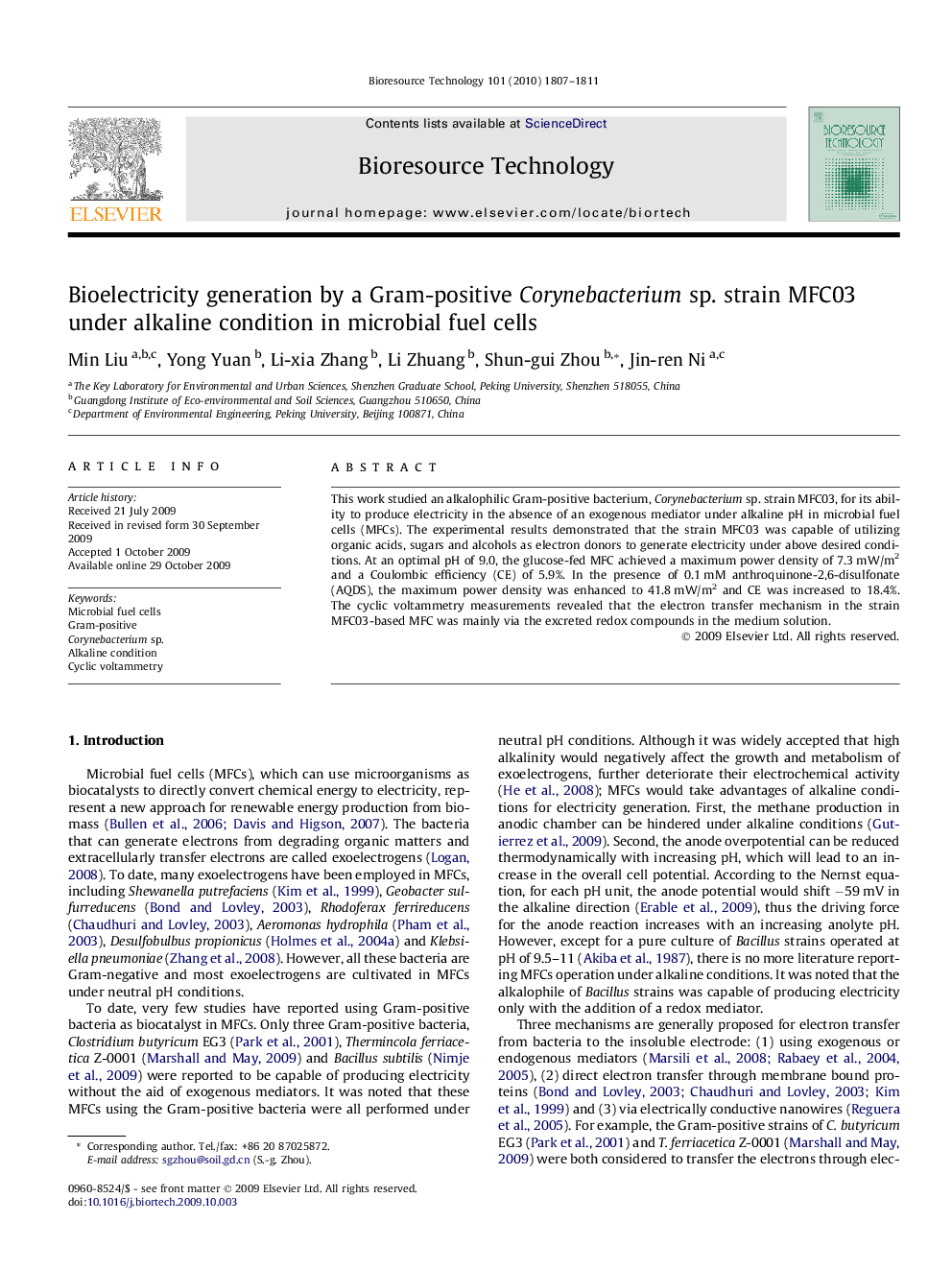| Article ID | Journal | Published Year | Pages | File Type |
|---|---|---|---|---|
| 682759 | Bioresource Technology | 2010 | 5 Pages |
This work studied an alkalophilic Gram-positive bacterium, Corynebacterium sp. strain MFC03, for its ability to produce electricity in the absence of an exogenous mediator under alkaline pH in microbial fuel cells (MFCs). The experimental results demonstrated that the strain MFC03 was capable of utilizing organic acids, sugars and alcohols as electron donors to generate electricity under above desired conditions. At an optimal pH of 9.0, the glucose-fed MFC achieved a maximum power density of 7.3 mW/m2 and a Coulombic efficiency (CE) of 5.9%. In the presence of 0.1 mM anthroquinone-2,6-disulfonate (AQDS), the maximum power density was enhanced to 41.8 mW/m2 and CE was increased to 18.4%. The cyclic voltammetry measurements revealed that the electron transfer mechanism in the strain MFC03-based MFC was mainly via the excreted redox compounds in the medium solution.
